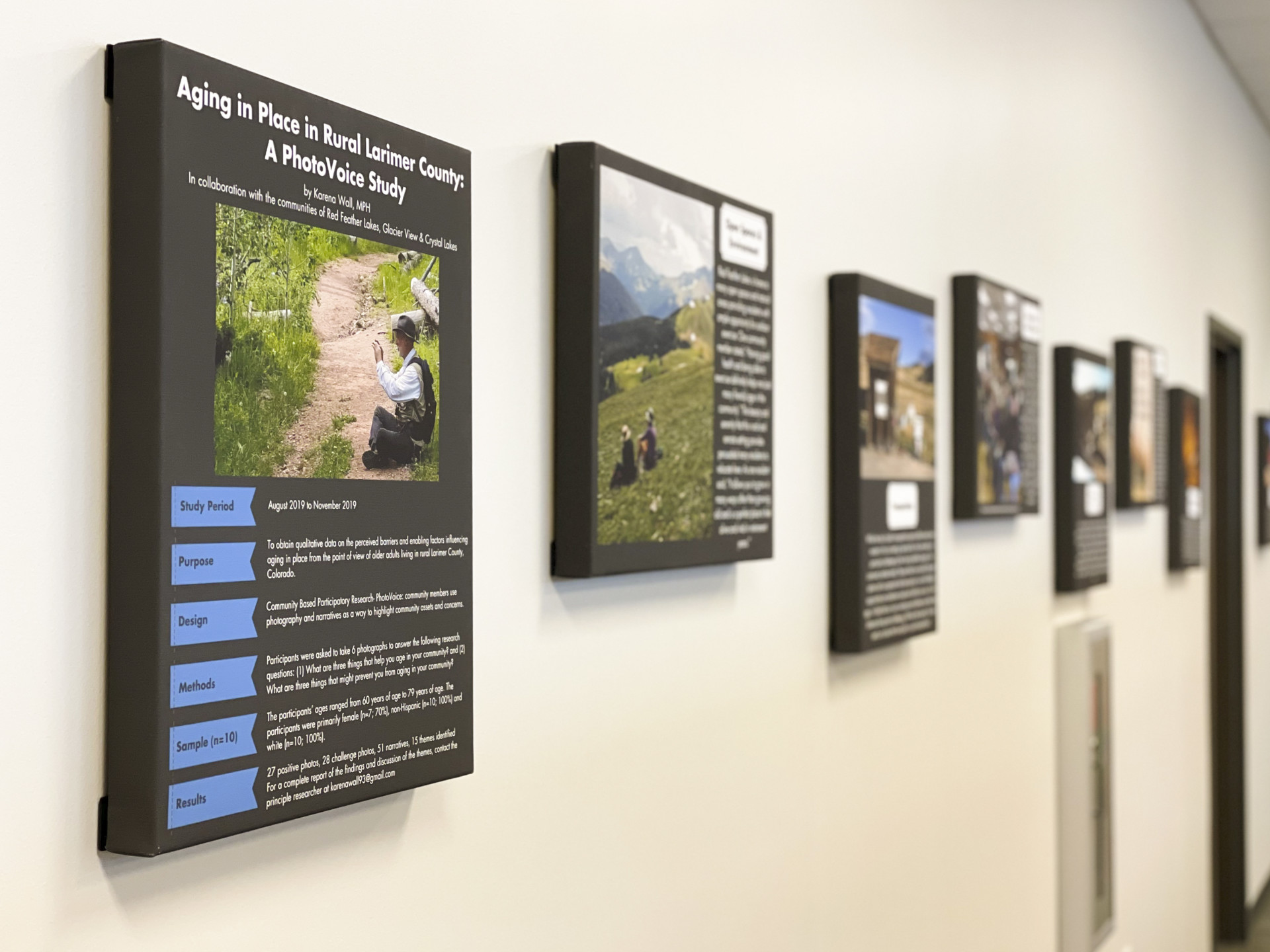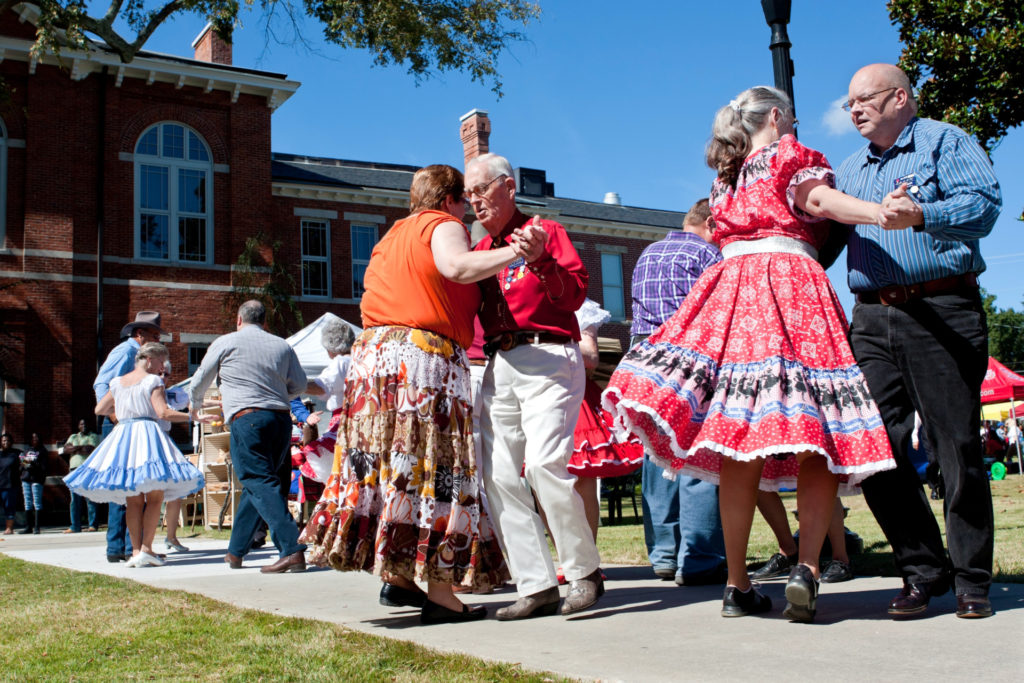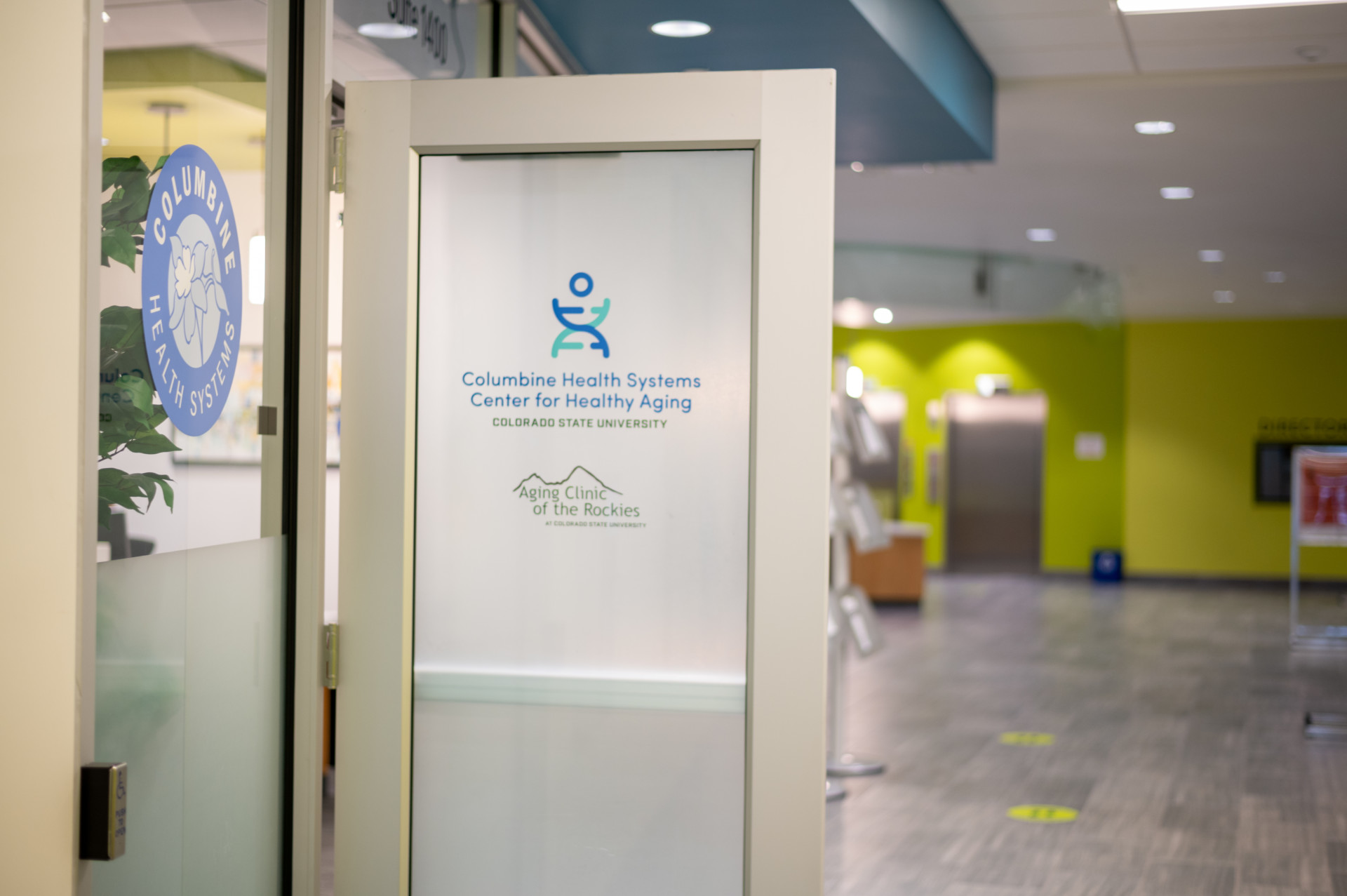
Participants in CSU’s “Moving Through Parkinson’s” program combined music, movement and social interaction at the Columbine Health Systems Center for Healthy Aging in 2018.
Colorado State University has become Colorado’s first member of the Age-Friendly University Global Network, an international group of colleges and universities that are committed to championing the needs of older adults in higher education.
The network currently consists of 81 member institutions that have pledged to become more age-friendly and inclusive in their programs, policies, and practices. To be accepted into the network, institutions must endorse the 10 Age-Friendly University Principles, including expanding educational opportunities for older adults, promoting intergenerational learning, and developing a research agenda around issues of aging, among others.
“Colorado State University’s commitment to ageing reflected in its endorsement of the Ten Principles of an Age-Friendly Network brings additional strength to the network,” Daire Keogh, president of the AFU Global Network, wrote in CSU’s acceptance letter.

A hallway in the Columbine Health Systems Center for Healthy Aging features information about research on aging in rural Larimer County conducted by CSU Extension. Photo by Kristin Pintauro
Gap analysis
CSU’s proposal for AFU designation was spearheaded by a Spring 2021 gap analysis that aimed to identify current strengths, gaps, and opportunities for growth regarding age friendliness at CSU. The analysis — which demonstrates a broad number of educational, research, and outreach activities in place at CSU for older adults — gave support to CSU’s application to the AFU Global Network.
A key finding from the report is CSU’s overall age friendliness score of 73%. The University excelled most in areas of physical environment, outreach and engagement with older adults and retired employees in the community, and services and resources provided to students and employees aged 50+. Data analysis was completed in collaboration with Professor Nina Silverstein and investigators at the University of Massachusetts Boston.
Practices highlighted as examples of CSU’s commitment to the AFU principles included Human Resources’ preretirement planning and wellness workshops, caregiving support for tenure-track faculty, and technology support provided by Academic Computing & Networking Services. The Osher Lifelong Learning Institute and the Adult Learner and Veteran Services program were also noted for the services and educational opportunities they provide to older adults at CSU.

A 2017 CSU study showed that dancing may offset some effects of aging in the brain.
Healthy aging center a catalyst
CSU’s Columbine Health Systems Center for Healthy Aging, directed by Dr. Nicole Ehrhart, professor of Clinical Sciences, was acknowledged for being a catalyst for interdisciplinary research on aging. The Center unites 60 faculty members across four colleges and 15 departments to carry out research that responds to the needs of an aging society.
Finally, on the education front, the gap analysis applauded the Department of Human Development and Family Studies and its undergraduate interdisciplinary minor in gerontology that prepares younger students to work with and for older adults in a variety of settings. Opportunities for older adults in the community to attend informal seminars, such as the Healthy Aging Speaker Series, were also recognized.
Demographic data from the analysis found that there were 3,512 members of the Colorado State University community aged 50+ in Spring 2021, including about 760 students.

The Columbine Health Systems Center for Healthy Aging opened in the CSU Health and Medical Center in 2017 and is headed by Dr. Nicole Ehrhart.
CSU as a ‘guidepost’
While there are many programs and practices where CSU is currently endorsing the age-friendly principles, the Spring 2021 analysis also revealed key opportunities for growth in the University’s future. Becoming a member of the AFU Global Network was the first step in addressing those gaps.
“CSU’s endorsement of the age-friendly principles will serve both as a compass and guiding foundation as we deepen and broaden age-inclusivity within our campus community,” said Ehrhart, who championed the AFU effort at CSU.
“We are excited to be the first university in the state of Colorado to receive this designation, and we hope CSU can serve as a guidepost for age-friendliness at other institutions of higher education across the state,” she added.
Moving forward, administrators intend to do campus-wide planning with various stakeholders to build a road map that will guide CSU’s efforts toward age inclusivity and diversity. The gap analysis conducted this past spring will be conducted periodically in the future to help CSU gauge how it is progressing towards these goals.
Integration with CST
“Now that we have secured this important designation for CSU, we intend to integrate this work into the Courageous Strategic Transformation process to maintain and expand our age-friendly practices. I am excited for the opportunity to build age-friendliness into the University’s Courageous Strategic Transformation plan,” said Vice President for Strategy Jenelle Beavers, who is leading the creation and implementation of the CST.
Planning efforts will be led by Ehrhart and the Center for Healthy Aging team in close collaboration with the Office of the President and the Vice President for Diversity and Inclusion to provide impetus for supporting programs that increase intergenerational learning opportunities and engage non-traditional learners.
CSU will also depend on its robust community relationships with organizations such as the Partnership for Age-Friendly Communities and the Larimer County Office on Aging to chart a path forward.
“An Age-Friendly University housed within an Age-Friendly City has obvious synergistic potential for promoting healthy aging and age-friendly resources,” Ehrhart said.